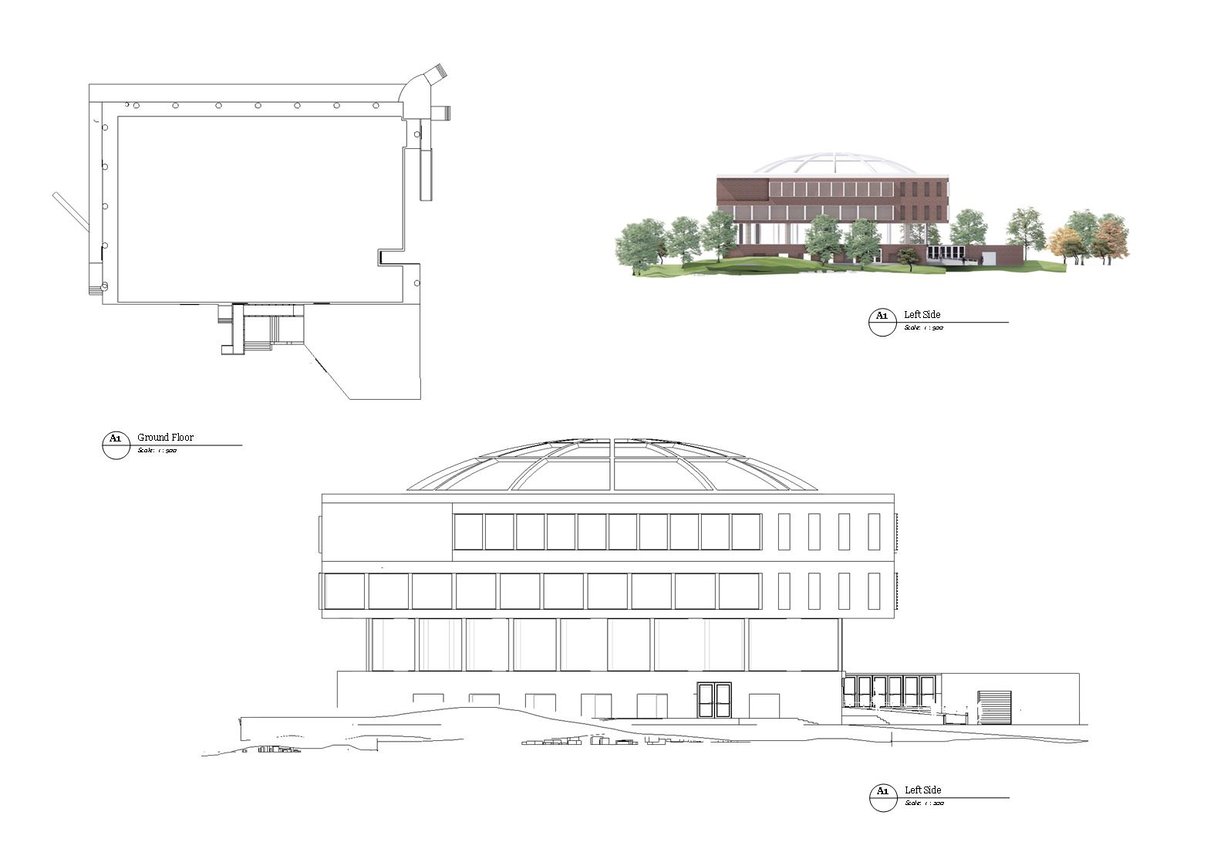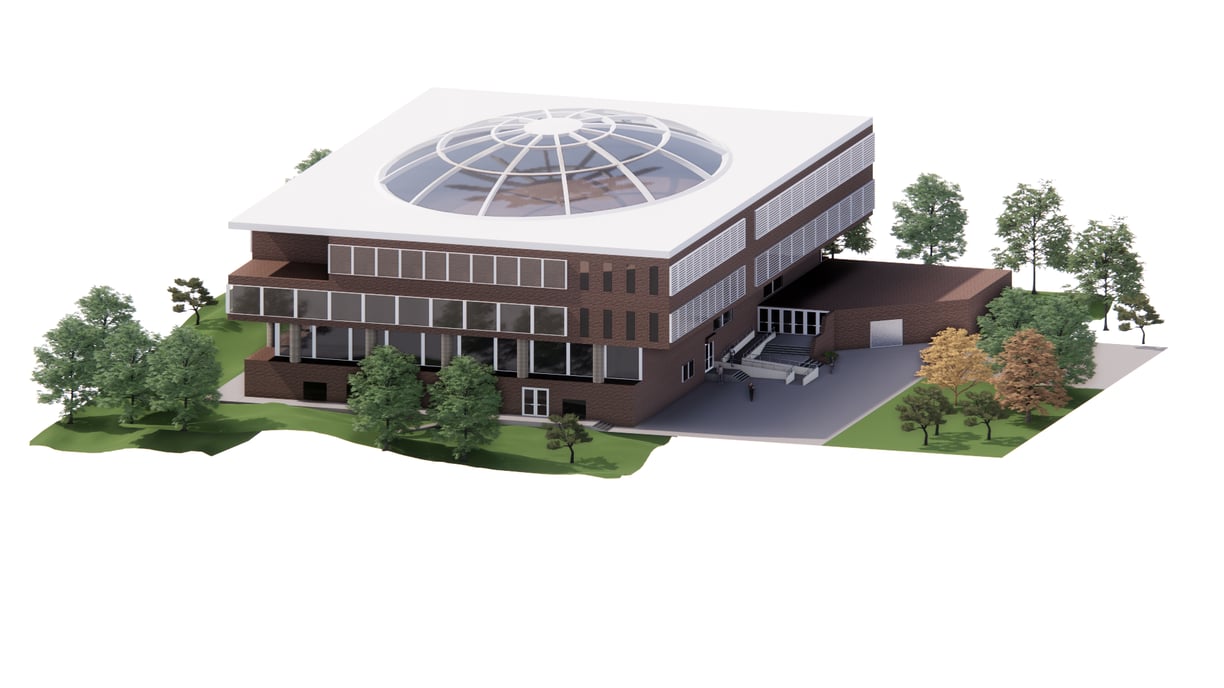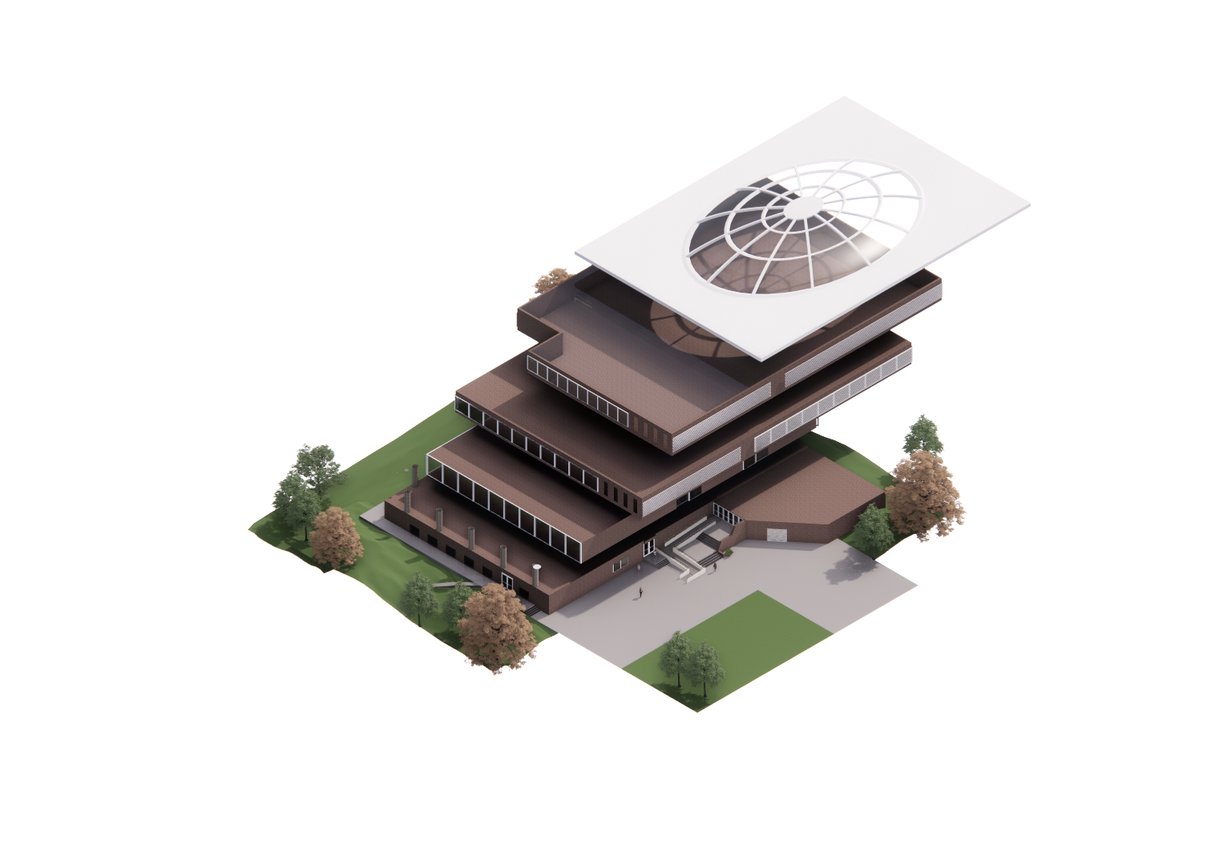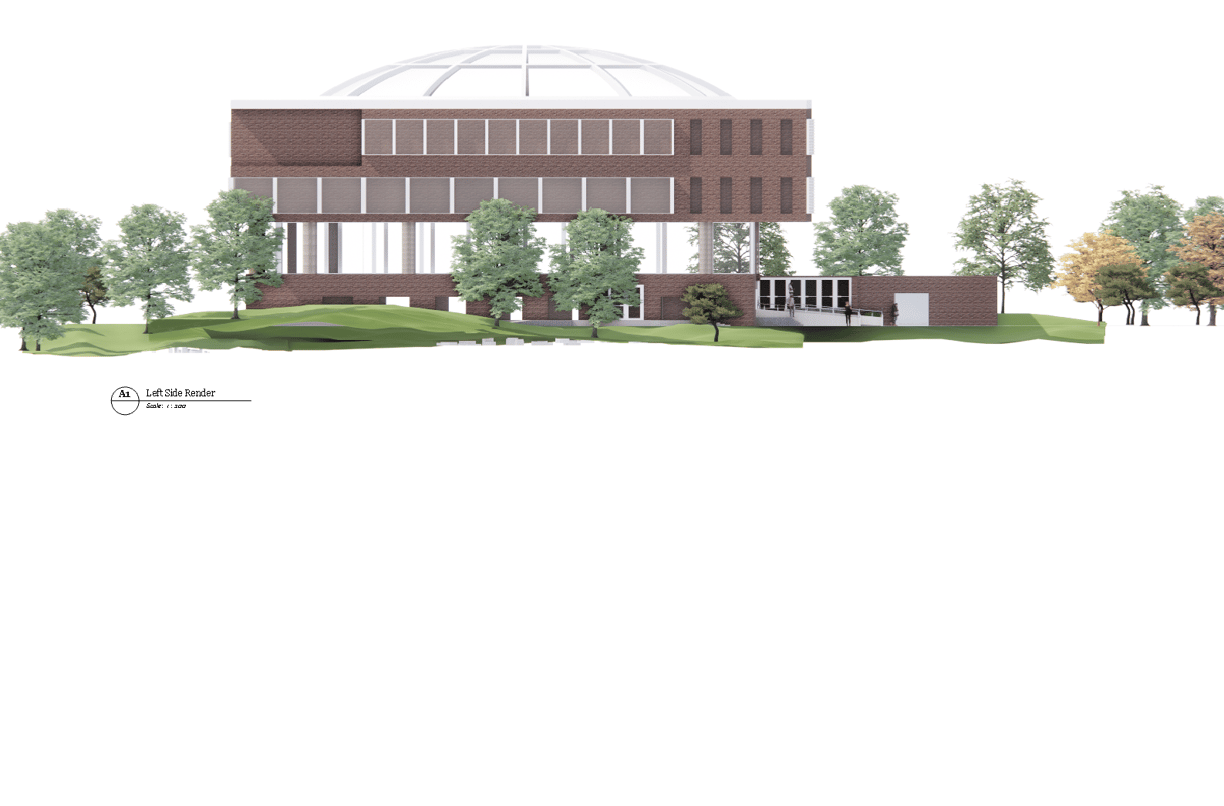Cameron Smail Library Refurbishment Proposal
10/17/20242 min read


Introduction to Smail Library Refurbishment
After conducting a thorough analysis of the Cameron Smail Library at Heriot-Watt University, we identified a significant challenge: the lack of adequate natural lighting throughout the structure. Our analysis encompassed multiple facets, including site conditions, spatial functionality, structural integrity, and fire safety considerations. It became evident that a major enhancement was necessary to elevate the library's environment and usability.
To address the issue of natural lighting, our proposed solution involves replacing the existing roof with a dome-shaped glass structure. This design not only introduces a modern aesthetic but also optimizes the influx of natural light, particularly crucial during the winter months when Edinburgh experiences limited sunlight hours. Data reveals that, on average, the library receives less than two hours of sunlight per day from November to January, highlighting the urgent need for a revitalized approach to lighting.
The new glass roof aims to transform the library into a bright, inviting space that promotes reading and learning. By analyzing sunlight patterns and optimizing the roof's design, we anticipate creating a more conducive environment for students and visitors alike. Furthermore, while the library is one of the quieter spaces on campus, background noise from adjacent corridors has been an ongoing concern. Our design proposal includes the integration of soundproofing measures to enhance acoustic comfort within the library.
The acoustic performance of the library is a priority in our redesign. We have gathered data to understand the existing noise levels and determined that an upgrade to high-performance double-glazing will significantly improve sound insulation. We aim to utilize materials that not only ensure superior acoustic performance but also promote a serene atmosphere conducive to studying and research.
Through the implementation of absorbent materials—such as acoustic fabric panels, insulating cotton, and rock wool—we will create designated areas that minimize background noise, particularly benefiting individuals with hearing disabilities. Additionally, the introduction of new, smaller, round-shaped bookcases will serve as acoustic partition panels, fostering a more approachable and accessible environment.






